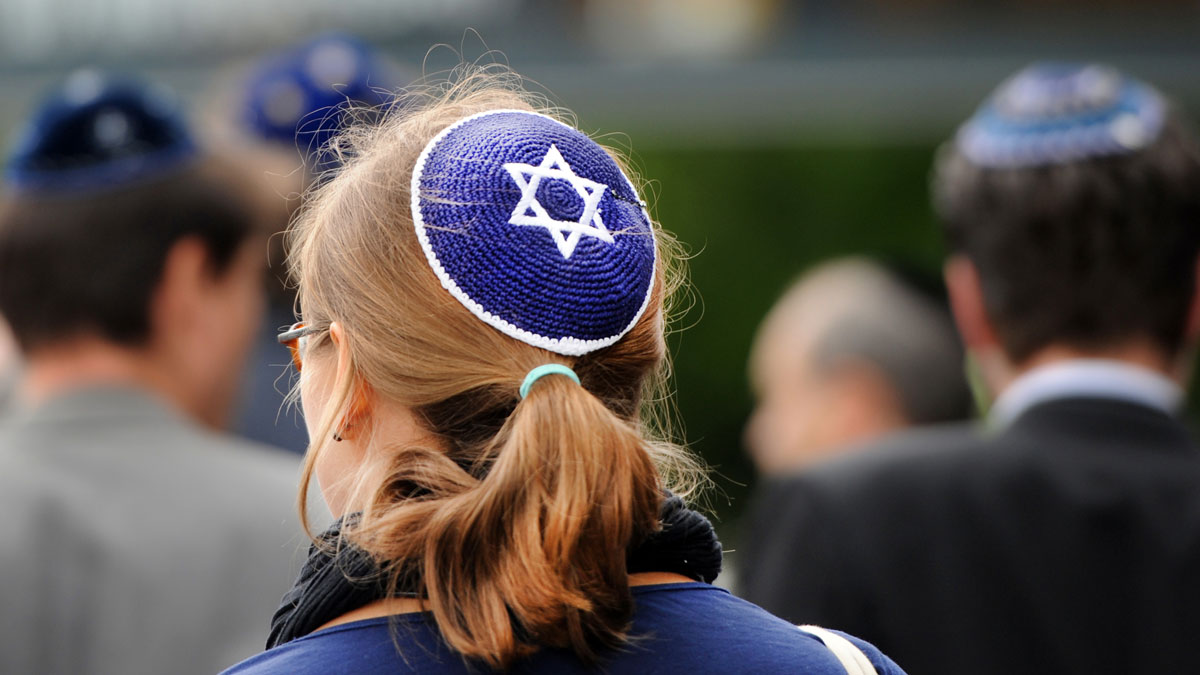Rosh Hashanah: customs and traditions of the Jewish New Year
Washing away sins, blowing a ram's horn and eating honey-soaked apples are important parts of the holiday

A free daily email with the biggest news stories of the day – and the best features from TheWeek.com
You are now subscribed
Your newsletter sign-up was successful
The Jewish community is preparing to celebrate Rosh Hashanah, one of the holiest days in the Jewish calendar.
Rosh Hashanah, which means "head of the year" in Hebrew, is the Jewish New Year and serves as a time of reflection and prayer to prepare for the coming year.
Two days of celebration begin on the first day of Tishrei, the seventh month of the Jewish calendar.
The Week
Escape your echo chamber. Get the facts behind the news, plus analysis from multiple perspectives.

Sign up for The Week's Free Newsletters
From our morning news briefing to a weekly Good News Newsletter, get the best of The Week delivered directly to your inbox.
From our morning news briefing to a weekly Good News Newsletter, get the best of The Week delivered directly to your inbox.
This year, Rosh Hashanah will begin at sundown on Sunday September 13 and end at nightfall on September 15. Celebrations include a number of important customs and traditions:
Prayers and blessings are made
For devout Jews, much of the holiday is spent in prayer in the synagogue, with morning, afternoon and evening services. A special prayer book called the machzor is used throughout the period. The traditional greeting and blessing given to friends and families is Shana Tovah (a good year).
Special foods are eaten
A free daily email with the biggest news stories of the day – and the best features from TheWeek.com
- Apples dipped in honey are a Rosh Hashanah favourite, symbolising the hope for a sweet new year
- Challah bread made into a round loaf instead of the traditional plait to represent the circle of life
- Pomegranates are a traditional treat as the fruit is said to have 613 seeds, corresponding with the same number of mitzvot – or commandments – in the Torah
- Fish, an ancient symbol of fertility and abundance is also, is also often eaten
Sins are washed away
Some Jewish people will go to a lake, river or sea to recite the Tashlich prayers and symbolically cast away their sins by emptying their pockets and throwing pieces of bread into the water. "We leave our old shortcomings behind us, thus starting the New Year with a clean slate," says Chabad.
The Shofar is sounded
A hollowed-out ram's horn, known as the shofar, is an ancient Jewish instrument which is played during prayers and has an important role throughout the Jewish holidays of Rosh Hashanah and the following Yom Kippur. “The blasts of the shofar are also wake-up calls," says Chabad. "Rosh Hashanah is the time to shake out of our spiritual slumber, reconnect to our source, and recommit to our divine mission in this world."
-
 Health insurance: Premiums soar as ACA subsidies end
Health insurance: Premiums soar as ACA subsidies endFeature 1.4 million people have dropped coverage
-
 Anthropic: AI triggers the ‘SaaSpocalypse’
Anthropic: AI triggers the ‘SaaSpocalypse’Feature A grim reaper for software services?
-
 NIH director Bhattacharya tapped as acting CDC head
NIH director Bhattacharya tapped as acting CDC headSpeed Read Jay Bhattacharya, a critic of the CDC’s Covid-19 response, will now lead the Centers for Disease Control and Prevention